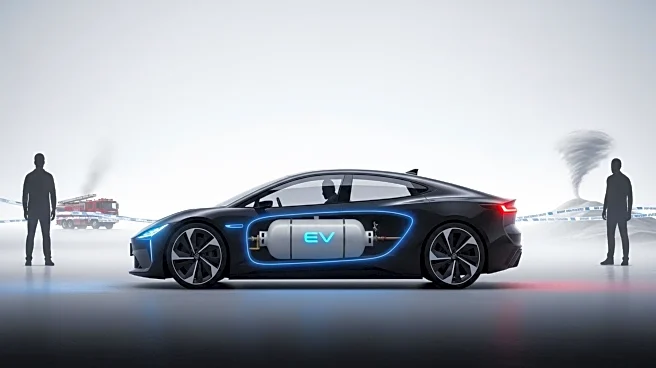What's Happening?
Bosch is advancing its electric vehicle (EV) technology by adopting propane-based thermal management systems. This move comes in response to upcoming regulatory changes in Europe that aim to phase out fluorinated greenhouse gases, commonly used in EV cooling systems. These gases are known for their environmental impact, and the European Union is proposing new regulations to replace them with more sustainable alternatives. Bosch's initiative is part of a broader industry shift towards environmentally friendly solutions, ensuring that EVs maintain performance and safety standards while reducing their ecological footprint.
Why It's Important?
The transition to propane-based thermal management systems in EVs is significant for the automotive industry, particularly in the U.S., as it aligns with global sustainability goals. By adopting greener technologies, companies like Bosch are setting a precedent for reducing the environmental impact of EVs, which are increasingly popular in the U.S. market. This shift could influence U.S. regulatory policies and encourage other manufacturers to explore similar sustainable solutions. The move also highlights the industry's commitment to innovation and environmental responsibility, potentially affecting consumer preferences and market dynamics.
What's Next?
As Bosch and other companies implement propane-based systems, the automotive industry may see increased collaboration to develop and refine these technologies. Regulatory bodies in the U.S. might consider similar measures to encourage sustainable practices, potentially leading to new standards for EV cooling systems. Automakers will likely invest in research and development to ensure these systems meet safety and performance criteria. The industry could also experience shifts in supply chains as manufacturers source new materials and technologies to comply with evolving regulations.
Beyond the Headlines
The adoption of propane-based thermal management systems could have long-term implications for the automotive industry, including changes in manufacturing processes and supply chain dynamics. It may also prompt discussions on the ethical responsibilities of automakers in addressing climate change. As the industry moves towards sustainability, there could be increased scrutiny on the environmental impact of vehicle production and disposal, leading to more comprehensive environmental policies.










